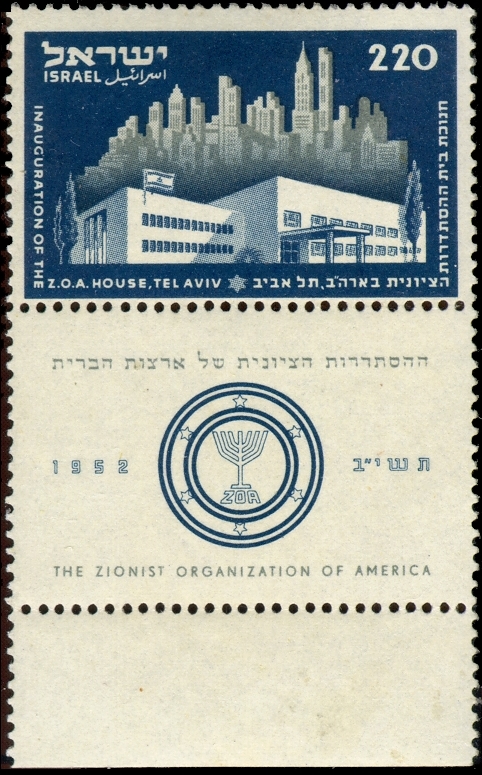|
Naftali Herz Tur-Sinai
Naftali Herz Tur-Sinai ( he, נפתלי הרץ טור-סיני; born 13 November 1886 – 17 October 1973) was a Bible scholar, author, and linguist instrumental in the revival of the Hebrew language as a modern, spoken language. Tur-Sinai was the first president of the Academy of the Hebrew Language and founder of its Historical Dictionary Project.The Academy of the Hebrew Language, Biography Naftali Herz Tur-Sinai was born Harry Torczyner in Lemberg, Galicia, Austria-Hungary (later Lwów, Poland, now Lviv, Ukraine) in 1886. He moved to Vienna, Austria, and then to Berlin, Germany in 1919 to be a lecturer at the Hochschule für die Wissenschaft des Judentums (College for Jewish Studies) in Berlin. He was in Palestine from 1910–1912 and participated in founding Gymnasia Rehavia in Jerusalem and Gymnasia Herzliya in Tel Aviv. He settled in Palestine in 1933. He was professor of Semitic languages at the Hebrew University of Jerusalem and a member of the Israel Academy of Sciences a ... [...More Info...] [...Related Items...] OR: [Wikipedia] [Google] [Baidu] |
Bible Scholar
Biblical criticism is the use of critical analysis to understand and explain the Bible. During the eighteenth century, when it began as ''historical-biblical criticism,'' it was based on two distinguishing characteristics: (1) the concern to avoid dogma and bias by applying a neutral, non-sectarian, reason-based judgment to the study of the Bible, and (2) the belief that the reconstruction of the historical events behind the texts, as well as the history of how the texts themselves developed, would lead to a correct understanding of the Bible. This sets it apart from earlier, pre-critical methods; from the anti-critical methods of those who oppose criticism-based study; from later post-critical orientation, and from the many different types of criticism which biblical criticism transformed into in the late twentieth and early twenty-first centuries. Most scholars believe the German Enlightenment () led to the creation of biblical criticism, although some assert that its roots ... [...More Info...] [...Related Items...] OR: [Wikipedia] [Google] [Baidu] |
Jerusalem
Jerusalem (; he, יְרוּשָׁלַיִם ; ar, القُدس ) (combining the Biblical and common usage Arabic names); grc, Ἱερουσαλήμ/Ἰεροσόλυμα, Hierousalḗm/Hierosóluma; hy, Երուսաղեմ, Erusałēm. is a city in Western Asia. Situated on a plateau in the Judaean Mountains between the Mediterranean Sea, Mediterranean and the Dead Sea, it is one of the List of oldest continuously inhabited cities, oldest cities in the world and is considered to be a holy city for the three major Abrahamic religions: Judaism, Christianity, and Islam. Both Israelis and Palestinians claim Jerusalem as their Capital city, capital, as Israel maintains its primary governmental institutions there and the State of Palestine ultimately foresees it as its seat of power. Because of this dispute, Status of Jerusalem, neither claim is widely recognized internationally. Throughout History of Jerusalem, its long history, Jerusalem has been destroyed at least twice, Sie ... [...More Info...] [...Related Items...] OR: [Wikipedia] [Google] [Baidu] |
Israel Prize
The Israel Prize ( he, פרס ישראל; ''pras israél'') is an award bestowed by the State of Israel, and regarded as the state's highest cultural honor. History The Israel Prize is awarded annually, on Israeli Independence Day, in a state ceremony in Jerusalem, in the presence of the President, the Prime Minister, the Speaker of the Knesset (Israel's legislature), and the Supreme Court President. The prize was established in 1953 at the initiative of the Minister of Education Ben-Zion Dinor, who himself went on to win the prize in 1958 and 1973. Awarding the prize The prize is awarded in the following four areas, with the precise subfields changing from year to year in a cycle of 4 to 7 years, except for the last area, which is awarded annually: * the humanities, social sciences, and Jewish studies * life and exact sciences * culture, arts, communication and sports * lifetime achievement and exceptional contribution to the nation (since 1972) The recipients of the prize are ... [...More Info...] [...Related Items...] OR: [Wikipedia] [Google] [Baidu] |
Bialik Prize
The Bialik Prize is an annual literary award given by the municipality of Tel Aviv, Israel, for significant accomplishments in Hebrew literature. The prize is named in memory of Israel's national poet Hayyim Nahman Bialik Hayim Nahman Bialik ( he, חיים נחמן ביאַליק; January 9, 1873 – July 4, 1934), was a Jewish poet who wrote primarily in Hebrew but also in Yiddish. Bialik was one of the pioneers of modern Hebrew poetry. He was part of the vangu .... There are two separate prizes, one specifically for "Literature", which is in the field of fiction, and the other for "Jewish thought" (חכמת ישראל). The prize was established in January 1933, Bialik's 60th birthday. List of recipients List of recipients in alphabetical order References External linksList of recipients 1933-2008, Tel Aviv Municipality website (Hebrew) [...More Info...] [...Related Items...] OR: [Wikipedia] [Google] [Baidu] |
Zionist Organization Of America
The Zionist Organization of America (ZOA) () is an American non-profit pro-Israel organization. Founded in 1897, as the Federation of American Zionists, it was the first official Zionist organization in the United States. Early in the 20th century, it was the primary representative of American Jews to the World Zionist Organization, espousing primarily Political Zionism. Today, the ZOA claims to have 25,000 members, down from its 1939 peak of 165,000. The ZOA opposes Palestinian statehood and advocated for the Trump travel ban. History Founding The ZOA was initially founded in 1897 as the Federation of American Zionists (FAZ), an amalgam of Hebrew societies, Chovevei Zion, and Jewish nationalist clubs that all endorsed the Basle programme of the First Zionist Congress. Initially founded as an organization for the greater New York area, the FAZ was established as a national organization at a conference in New York the next year where the constitution was adopted by the delegat ... [...More Info...] [...Related Items...] OR: [Wikipedia] [Google] [Baidu] |


